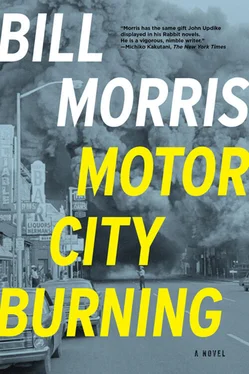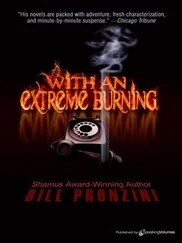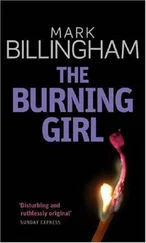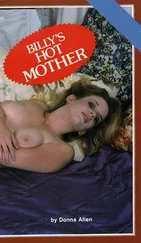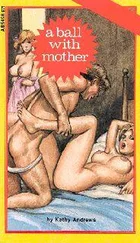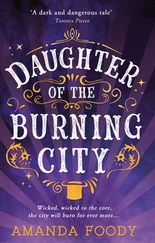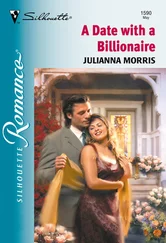Now he remembered that it was Diane, resourceful and determined Diane, who’d persuaded a reluctant black taxi driver to take Willie and John Lewis and Jim Zwerg to a house on the outskirts of Montgomery an hour after the attack at the bus station. No doctor in town, black or white, would patch up the three battered Freedom Riders. Too dangerous, they said. Not worth it. Diane, who knew the streets of Montgomery cold, directed the cab driver to a house at the dead end of a leafy, middle-class block. A black woman in her bathrobe let them in through the back door. She eyed their bloody clothes and the bloody towels they were pressing to their wounds, none too happy about it, but she went upstairs to wake her husband. He shuffled into the kitchen in his bathrobe, squinting and yawning. While he was sewing Willie’s split lip at the kitchen table, they could all hear Diane in the living room shouting at Jim Farmer on the telephone: “We can’t let them stop us with violence! If we do, the movement is dead! You hear me? Dead! ” Not until they were back in the taxi did Diane tell Willie that the man who’d sewn up his lip was a veterinarian.
Three nights later, after the big press conference, they all gathered at the home of a Montgomery pharmacist to decide exactly what came next. Willie could see the house again: green clapboards with paint so fresh it looked wet; a broad front porch with rocking chairs and potted geraniums; and inside, gleaming floorboards. He could see the couple that greeted everyone at the front door: the prim little pharmacist with his bow tie and rimless spectacles, his big wife in her flowery dress and the enormous please-don’t-sit-in-front-of-me hat she surely wore to church every Sunday. Yes, Willie remembered thinking, these were church people. King’s people.
Everyone crowded into the living room. There was a certificate from the NAACP and a diploma from Meharry above the mantelpiece. For once there were no photographers or reporters on hand. The air in that room was thick with humidity and distrust. An ax seemed to be cleaving the air, splitting it between young and old, between the vulnerable and the protected, between the warriors and the generals. The former stood along the walls and sat on the floor; the latter helped themselves to the plush sofas and chairs.
The pharmacist’s wife circulated with trays of cold lemonade. “Made it from scratch myself,” she said proudly, though Willie, for one, didn’t believe it. The generals all snatched at the sweating glasses and drank lustily in the unseasonable heat. The young people shunned the offering, a small act of solidarity in the face of what lay ahead, both on that night and in the coming days.
Willie sat in a corner. To his right was a white girl named Joan. Her stringy hair was the color of mud and her T-shirt said JUST A CRACKER FROM GEORGIA. Hard to believe anything could coax a smile out of him at a time like that — his mouth was hurting like hell, his head was hurting, everything was hurting — but Joan’s T-shirt actually made Willie smile. She smiled back.
To her right sat beautiful Diane Nash. She was fidgeting, wound up, obviously spoiling for a fight.
Farmer went first. He called the Freedom Rides “my show” and vowed they would continue with fresh CORE volunteers currently on the way from New Orleans. This was greeted with angry shouts, accusations, vows that no one could tell the riders to get off the buses. Abernathy restored the peace.
That was pretty bad, but they were willing to let it slide because they were more interested in King — and if he planned to board the buses with them in the morning.
That was when Diane Nash stood up. Gripping her Bible, as usual, she delivered a short speech and then said to King, “Where is your body, Dr. King?” They’d all heard the question a thousand times, but this time it took the air out of the room. King looked like he’d stopped breathing. “Where is your body, Dr. King?” Diane repeated, louder.
All of King’s flunkies came to his defense, saying he was needed for fund-raising speeches and high-level negotiations with Attorney General Robert Kennedy, important missions that couldn’t be accomplished from a bus seat or a jail cell. That got everyone riled up again, and again it was Abernathy who called for quiet. Finally Diane did what she had done to the mayor of Nashville. She asked King point-blank: “Are you getting on the bus with us in the morning or not, Dr. King? Yes or no?”
Again King’s flunkies rose up, saying he was still on probation for a 1960 traffic arrest in Georgia, and any new arrest would land him in jail for six months.
When Willie heard that, he felt himself getting up off the floor, heard himself saying through swollen lips, “I’m on probation — and I’m going.”
“Me too,” said Joan, the cracker from Georgia.
“Me too,” said someone across the room.
Willie said, “What’s the big deal with going to jail, Dr. King? Most of us have been to jail. Are you afraid of going to jail?”
And then he saw it — a sudden crack in the famed King composure. King looked at Willie, saw the stitches in his lip, then looked away. His tongue darted. He huffed. He knew he was cornered. Finally he said, “I think. . I think I should choose the time and place of my Golgotha.”
My Golgotha!
There was stunned silence and then Diane Nash hissed, “Would you listen to that? Man thinks he’s de Lawd hisself!”
And that, Willie saw now, seven long years after the fact, was the moment when the trap door sprang open beneath him. That was the moment when he began to fall because he saw, for the first time, the wrongness of his belief that the world — that people, black or white — could be made to change for the better. Martin Luther King was just another garden-variety demagogue who thought he was de Lawd hisself. And that was how Willie had thought of King ever since that night at the pharmacist’s house, as a self-anointed deity getting ready to go back to Atlanta to take care of more important business while the Freedom Riders got ready to journey into the lion’s mouth. That night in Montgomery was the beginning of the end for Willie, and he owned it at last.

He rewound the reel of microfilm, shut down the machine, and left the library in a daze. The next morning he started writing his memoir. It felt good, but it was painful too. Disillusionment always is. The most painful thing about his disillusionment was its irony, the fact that it sprang not from the expected source — the racism of the white man — for that was a given, something almost comforting because it gave shape and substance to the black man’s rage, was as reliable and implacable as the passing of the seasons. No, his disillusionment was painful because it sprang not from the venality of any particular race, but from the greater venality of being human, trapped inside a sack of skin that happened to be black, trapped inside history, trapped by his own imperfect past and by the ambitions and egos and smallness of men he wanted to revere but could not.
His life was simple now. He had a job to do, a story to tell. Now that he knew the framework of that story — the beginning, the middle, the beginning of the end, and the end — he could start telling the truth about men like Jim Farmer and Martin Luther King and Willie Bledsoe. The truth about his first white woman — and his second white woman. Even the truth about carrying the guns from Alabama to Detroit.
Of course he still wanted to know what happened to the last three guns. He was pretty sure one of them was a murder weapon. But which one? Now that his ’54 Buick had vanished, the answer to that question was the only thing that could undo him — and then only if the cops were able to come up with the answer and prove it in court. For the first time, Willie was beginning to like his chances.
Читать дальше
